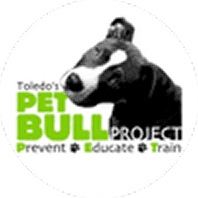Comprehensive Pet Care Tips and Dog Training Insights
At Toledo’s Pet Bull Project, we are dedicated to promoting responsible pet ownership and ensuring that all dogs, regardless of breed, receive the love and care they deserve. Whether you’re a new pet parent or an experienced dog owner, understanding key pet care tips and advice, as well as dog training insights, is essential for raising a happy, healthy, and well-behaved companion.
The Fundamentals of Responsible Pet Care
Providing proper care for your dog goes beyond just food and shelter. It involves a commitment to their overall well-being, physical health, and emotional happiness.
1. Nutrition and Diet
A balanced diet is crucial for your dog’s health. Here are some essential pet care tips and advice regarding nutrition:
- Choose High-Quality Food: Look for dog food that contains real meat, healthy grains, and essential nutrients. Avoid fillers like corn and artificial additives.
- Portion Control: Overfeeding can lead to obesity and health issues. Follow the feeding guidelines recommended by your vet.
- Fresh Water Always Available: Hydration is just as important as food. Make sure your dog has access to fresh, clean water at all times.
- Healthy Treats: Opt for nutritious treats like carrots, blueberries, or specially formulated dog snacks rather than processed treats high in sugar and preservatives.
2. Exercise and Mental Stimulation
Keeping your dog active and engaged is crucial for their overall well-being:
- Daily Walks: Regular walks help maintain fitness and provide mental stimulation.
- Playtime: Games like fetch, tug-of-war, and agility courses keep dogs entertained and healthy.
- Interactive Toys and Puzzles: Mental stimulation is just as important as physical activity. Puzzle toys challenge your dog’s mind and prevent boredom.
3. Regular Vet Checkups
Preventative care is the key to a long and healthy life for your dog:
- Annual Exams: Routine vet visits ensure your dog is in good health and up to date on vaccinations.
- Dental Care: Brush your dog’s teeth regularly to prevent gum disease and bad breath.
- Parasite Prevention: Fleas, ticks, and heartworms can cause serious health problems. Talk to your vet about the best preventative treatments.
4. Grooming and Hygiene
Regular grooming keeps your dog comfortable and looking their best:
- Brushing: Depending on the breed, your dog may require daily, weekly, or monthly brushing to prevent mats and shedding.
- Bathing: Use dog-friendly shampoo and bathe your pet as needed (typically every 4–6 weeks, unless advised otherwise by a vet).
- Nail Trimming: Overgrown nails can be painful and cause walking difficulties. Trim them regularly or have a groomer assist you.
Dog Training Insights for a Well-Behaved Companion
Training is an essential part of responsible pet ownership. A well-trained dog is safer, happier, and more enjoyable to be around.
1. Positive Reinforcement Works Best
Dogs respond well to positive reinforcement training techniques:
- Reward Good Behavior: Use treats, praise, or playtime to reinforce positive actions.
- Be Consistent: Use the same commands and rewards to avoid confusing your dog.
- Patience is Key: Some dogs learn faster than others. Stay patient and persistent.
2. Basic Commands Every Dog Should Know
Teaching your dog basic commands makes life easier and safer for both of you:
- Sit: Helps with impulse control and general obedience.
- Stay: Prevents your dog from running into dangerous situations.
- Come: Ensures your dog returns to you when called, which is crucial for their safety.
- Leave It: Helps prevent them from eating harmful substances or engaging in unwanted behaviors.
3. Socialization is Crucial
Exposing your dog to different people, places, and other animals helps them become well-adjusted:
- Early Socialization: Puppies should be introduced to various environments, people, and sounds early on.
- Controlled Interactions: Always monitor playtime with other dogs to ensure positive experiences.
- Enroll in Training Classes: Group classes provide both socialization and structured learning.
4. Handling Common Behavior Issues
Even the best-trained dogs may develop behavioral issues. Here are some dog training insights to help:
- Separation Anxiety: Gradually increase the time you spend away from your dog to ease their distress.
- Excessive Barking: Identify triggers and train alternative behaviors like “quiet” commands.
- Jumping on People: Ignore the behavior and only reward calm greetings.
- Leash Pulling: Use positive reinforcement techniques to teach loose-leash walking.
The Importance of Spaying and Neutering
One of the most effective ways to prevent overpopulation and keep your pet healthy is to have them spayed or neutered. This procedure provides numerous benefits:
- Reduces Unwanted Litters: Helps control the number of homeless animals.
- Prevents Certain Health Issues: Spaying/neutering lowers the risk of some cancers and infections.
- Promotes Better Behavior: Can reduce aggression, roaming tendencies, and marking behaviors.
Preventing Animal Cruelty and Dog Fighting
Toledo’s Pet Bull Project is committed to stopping animal cruelty and dog fighting. Here’s how you can help:
- Report Suspicious Activity: If you witness neglect, abuse, or signs of dog fighting, contact local authorities.
- Educate Others: Spread awareness about the importance of responsible pet ownership.
- Support Rescues and Shelters: Consider adopting a rescue dog and donating to animal welfare organizations.
Final Thoughts
Being a responsible pet owner requires commitment, education, and compassion. By following these pet care tips and advice and implementing effective dog training insights, you can ensure a loving and happy life for your furry companion.
Toledo’s Pet Bull Project is here to support you on your journey of responsible pet ownership. Stay connected with us for more expert advice, training resources, and community events aimed at improving the lives of pets and their owners.
